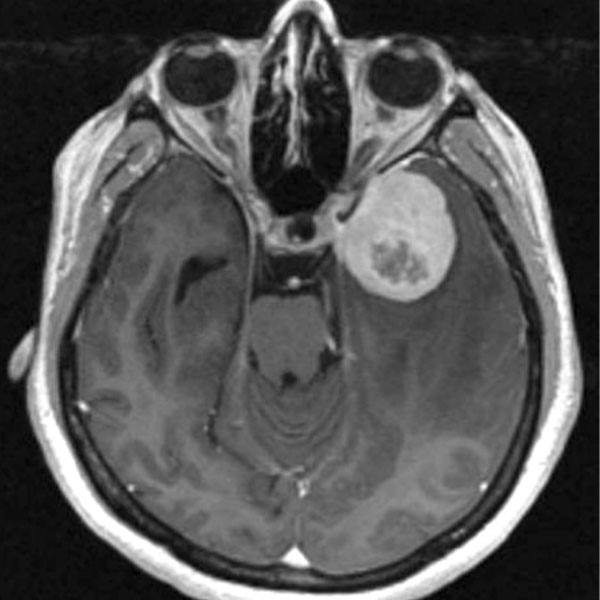-
T Cells in Rheumatoid Arthritis Have Damaged Mitochondria, Study Finds
Mayo Clinic researchers have linked the T cell disfunction seen in rheumatoid arthritis with a metabolic deficiency, according to a new publication in Nature Immunology. In "helper" T cells donated by Mayo Clinic patients, low levels of a specific amino acid lead to cellular miscommunication, and supplying it may provide a new therapeutic strategy for autoimmune disease.
Unlike arthritis of the joints that comes from daily activities, rheumatoid arthritis is an autoimmune disorder. The disorder is caused by immune cells reacting to the body's own cells, instead of infectious agents. These immune cells release chemicals, like the cytokine tumor necrosis factor, that fuel an inflammatory response as if the body's cells were in fact pathogens. Patients have chronic inflammation of the lining surrounding joints but may also have damage to organs and blood vessels.
"For the last 25 years, tumor necrosis factor has been an important therapeutic target to treat autoimmune disease and tissue inflammation," says Mayo Clinic immunologist and rheumatologist Cornelia Weyand, M.D., Ph.D., senior author of the new publication. "The introduction of tumor necrosis factor-inhibitors was a paradigm shift for the management of inflammatory disease. But while they block the action of tumor necrosis factor in the inflamed tissue site, they cannot prevent the production of the cytokine. Therefore, they cannot treat the root cause of tumor necrosis factor -induced disease."

Preventing that root cause is the goal of scientists, and Dr. Weyand's team began by looking at one of the immune system's coordinators: helper T cells. These cells organize immune responses to a pathogen. But when the response tapers off, some of these cells remain in case of reinfection. They can help the body respond more quickly. But Dr. Weyand points out, it's not just previous encounters with pathogens that T cells remember.
"Unfortunately, these T cells can also memorize their own mistakes and in patients with rheumatoid arthritis they lead the attack against the joints," she says. "As scientists, we have been obsessed with understanding why heroes turn into villains, why T cells born to defend our patients become the enemy from within."
Trailing T cell Dysfunction to its Source
Previous research from the team found metabolic errors in T cells from patients with rheumatoid arthritis, suggesting these T cells produced less energy than they should. Past research has also suggested that the changes in T cells happen prior to a patient being diagnosed with the disease.
For the most recent article, the team collaborated with Mayo Clinic rheumatologists and surgical teams to collect T cells from patients with rheumatoid arthritis. They found that T cells are a major source of tumor necrosis factor and turned to cell and mouse models to figure out why. They eventually discovered that the T cells have a defect in their cellular powerplant, called mitochondria.
"Mitochondria produce the energy that cells need to live and function and we made the observations that T cells from patients with RA have low-performing mitochondria," explains Dr. Weyand. "By screening the cells for their mitochondrial products, we found that the rheumatoid arthritis T cells lack the amino acid aspartate."
Mitochondria generate energy for the cell by passing a negatively charged particle (electron) through a series of protein complexes with the final product being water and the energy molecule of the cell, called ATP. One of those protein complexes includes aspartate. Through a series of experiments, the researchers discovered that aspartate acts as a messenger between the mitochondria and another organelle within the cell, called the endoplasmic reticulum. While mitochondria generate energy, the endoplasmic reticulum is the cell’s protein production plant. When mitochondria decrease aspartate communication with the endoplasmic reticulum, it begins to expand and overproduces proteins in response. One of the most important of them is tumor necrosis factor.
"In essence, tumor necrosis factor hyperproduction is a result of a metabolic defect," explains Dr. Weyand. "Mis-nourished T cells dedicate themselves to tumor necrosis factor production and become highly efficient pro-inflammatory effector cells."

Treating Autoimmune Disease at the Root
Equipped with this knowledge, Dr. Weyand hopes researchers will be able to develop new therapeutic strategies to combat excess tumor necrosis factor.
"This will be of great importance for our patients because many become resistant to standard tumor necrosis factor blockers. And of equal importance is the recognition that metabolic defects within cells can lead to disease," says Dr. Weyand. "We want to develop strategies that can repair the mitochondrial defect, replenish the aspartate and successfully suppress tissue inflammation."
In addition to Dr. Weyand, other authors, all from Mayo Clinic, are Bowen Wu, Ph.D.; Tuantuan Zhao, Ph.D.; Ke Jin, Ph.D.; Zhaolan Hu, Ph.D.; Matthew Abdel, M.D.; Kenneth Warrington, M.D.; and Jörg Goronzy, M.D. Federal grants provided funding for this work.
These findings, Dr. Weyand says, were made possible by blood and tissue donated by Mayo Clinic patients and Mayo's focus on teamwork. As well as, she adds, by the Mayo focus on discovery, translation, and application.
"Ultimately, serving our patients means that we must understand what makes them sick. Only then will we be able to provide the best care and to pursue the dream to heal and to cure."
Funding for this work was provided by the Naitonal Institutes of Health. Read the full report in Nature Immunology.







